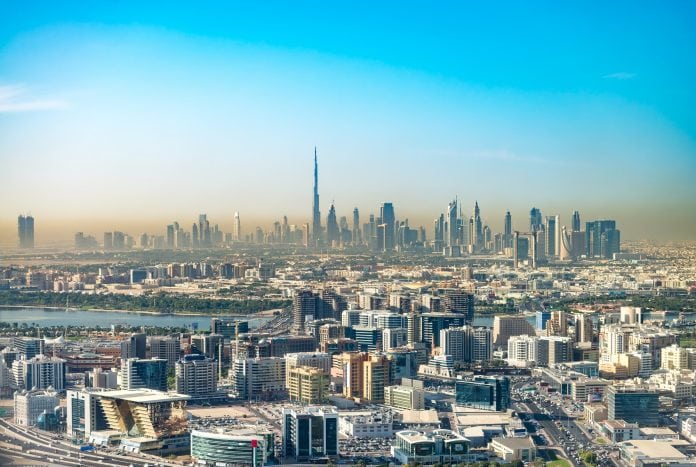
The Dubai economy is expected to grow by 3 to 4 percent in the 2017-2018 period, Hamad Buamim, President and CEO of Dubai Chamber of Commerce and Industry, said at a ‘Meet the CEO’ event organised by the Government of Dubai Media Office (GDMO) on Monday.
Buamim highlighted that 98 percent of Dubai’s GDP comes from non-oil sectors, which include tourism, aviation, hospitality, retail, logistics, and financial services. He added that Dubai will create new business opportunities and target new markets over the coming years.
He said that the United Arab Emirates has a clear and comprehensive vision to diversify its economy and achieve an optimal balance between its various sectors to ensure sustainability and create new business opportunities.
Dubai Chamber’s President and CEO explained that the vision of The Vice President, Prime Minister and Ruler of Dubai, His Highness Sheikh Mohammed bin Rashid Al Maktoum, is to create a solid foundation for the Dubai economy in the post-oil era by strengthening trade.
Buamim added that analysis conducted by Dubai Chamber has projected steady growth in Dubai’s markets in 2018, expressing his optimism about Dubai’s prospects. He also highlighted Dubai’s competitive advantages, which have enabled it to attract a high volume of FDI that exceeded US$3 billion H1, 2017.
‘Meet the CEO’ event is part of a series of press events organised by GDMO for leaders of prominent Dubai-based organisations.
The UAE has made it an increasing priority over the last 20 years to diversify its economy away from oil-dependence and into the era of a knowledge-based economy.
The Mohammed bin Rashid Al Maktoum Knowledge Foundation (MBRF) is launching the Knowledge Summit 2017 this morning, taking place at the Dubai World Trade Centre until 22nd November.
The Summit will showcase the results of the Global Knowledge Index, the first instrument of its kind in the world, which the Foundation launched in collaboration with its strategic partner, the United Nations Development Program to evaluate knowledge on a global scale. The Index enlists more than 131 countries and considers 133 variables, adhering to a set of strict rules and criteria for admissible data.























![The Square at Nad Al Sheba Gardens Now Open hope tax season treated you well! Just checking in—ready to refocus on growing your business? I remember how we discussed scaling your [specific aspect of their business, e.g., online presence] but paused due to time constraints. We now offer a streamlined 6-month plan that delivers real results without adding to your workload. Let me know if you'd like to chat—I’d love to help you pick up where we left off!](https://www.dubaichronicle.com/wp-content/uploads/2024/11/The-Square-5-218x150.jpg)








